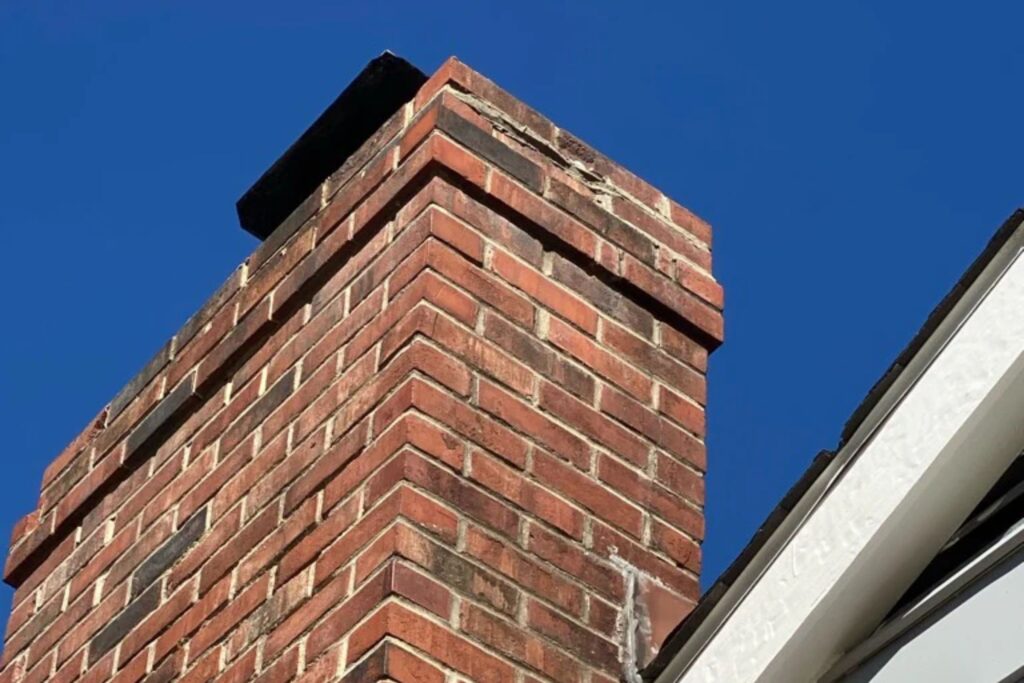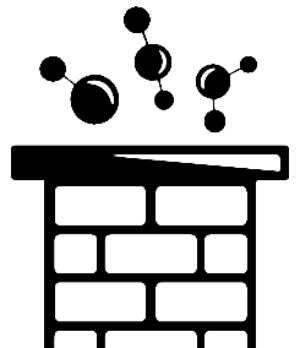Home » Chimney Services » Water Intrusion
Water is the number one cause of chimney deterioration. Left unchecked, moisture can damage everything from your flue liner to your home’s interior walls. At Chimney Scientists, we provide comprehensive chimney water intrusion repair services across Greater Philadelphia and the Poconos. Whether you’re dealing with visible leaks or subtle signs like staining or odors, our certified technicians offer detailed diagnostics, durable repairs, and long-term prevention solutions that protect your home from the top down.
Chimney water intrusion refers to any unwanted moisture that enters the chimney system, whether through the crown, flashing, flue, or masonry. While chimneys are built to handle high heat and smoke, they are vulnerable to water damage if not properly sealed and maintained.
Common causes of water intrusion include:
Even a small leak can lead to significant issues over time if left unresolved.

Many homeowners don’t realize they have a leaking chimney until damage is already done. Here are common signs that your chimney is compromised:
If you’re seeing any of these red flags, schedule a chimney inspection as soon as possible to identify the source and severity of the problem.
Water damage is progressive and often hidden behind the scenes until major repairs are needed. As moisture seeps into masonry, it can freeze and expand during cold weather, leading to cracks and structural instability. Over time, this can:
Moisture also corrodes metal components, leading to the premature failure of dampers, smoke chambers, and flue caps. If your chimney liner is compromised, it may require chimney flue repair or replacement to restore safe venting.
At Chimney Scientists, we don’t just patch the visible damage; we diagnose and correct the root cause. Our chimney leak repair and chimney waterproofing services are designed to address both structural vulnerabilities and surface-level issues.
Our solutions include:
We use advanced tools like moisture meters, camera scopes, and drone imaging to document every issue and ensure the solution is customized to your home. For exterior damage to the crown or brickwork, we may also recommend chimney crown repair.
We’re not just chimney technicians—we’re one of the most advanced, science-driven chimney companies in the country. Our team uses moisture meters, drones, and video scopes to identify water damage with precision. We’re also the only company in the Philadelphia area certified to work on historic masonry using proper lime-based materials. Every job is documented, reviewed by a dedicated quality control manager, and backed by clear reporting with no guesswork and no shortcuts.
If you suspect chimney water intrusion, don’t wait. Moisture damage gets worse and more expensive the longer it’s ignored. Chimney Scientists proudly serves homeowners throughout Philadelphia, Montgomery, Bucks, Chester, Delaware, Lehigh, Monroe, and Carbon counties with responsive service and industry-leading expertise.
Schedule your chimney leak inspection today and get a full report with photos, moisture readings, and repair recommendations, so you know exactly what to expect and why it matters.
Chimney efflorescence is caused by moisture pushing salt and minerals from the brick to the surface, leaving a white, powdery residue. It’s a sign of ongoing water intrusion and potential masonry damage.
Brick chimney water damage is serious, as it can cause mortar joints to weaken, bricks to spall or crumble, and compromised structural stability. If left untreated, it can lead to full chimney collapse.
If you notice water stains near your chimney, rusted fireplace components, or signs of interior leaks, your chimney flashing could be the culprit. We recommend a full inspection to confirm the issue.
Chimney waterproofing is necessary because it helps prevent water from seeping into brick and mortar without trapping moisture inside. It’s one of the most effective ways to preserve your chimney long-term.
A chimney rain cap can stop water from entering through the flue opening, but it won’t fix leaks from damaged flashing or cracked crowns. That’s why a thorough inspection is always the first step.

